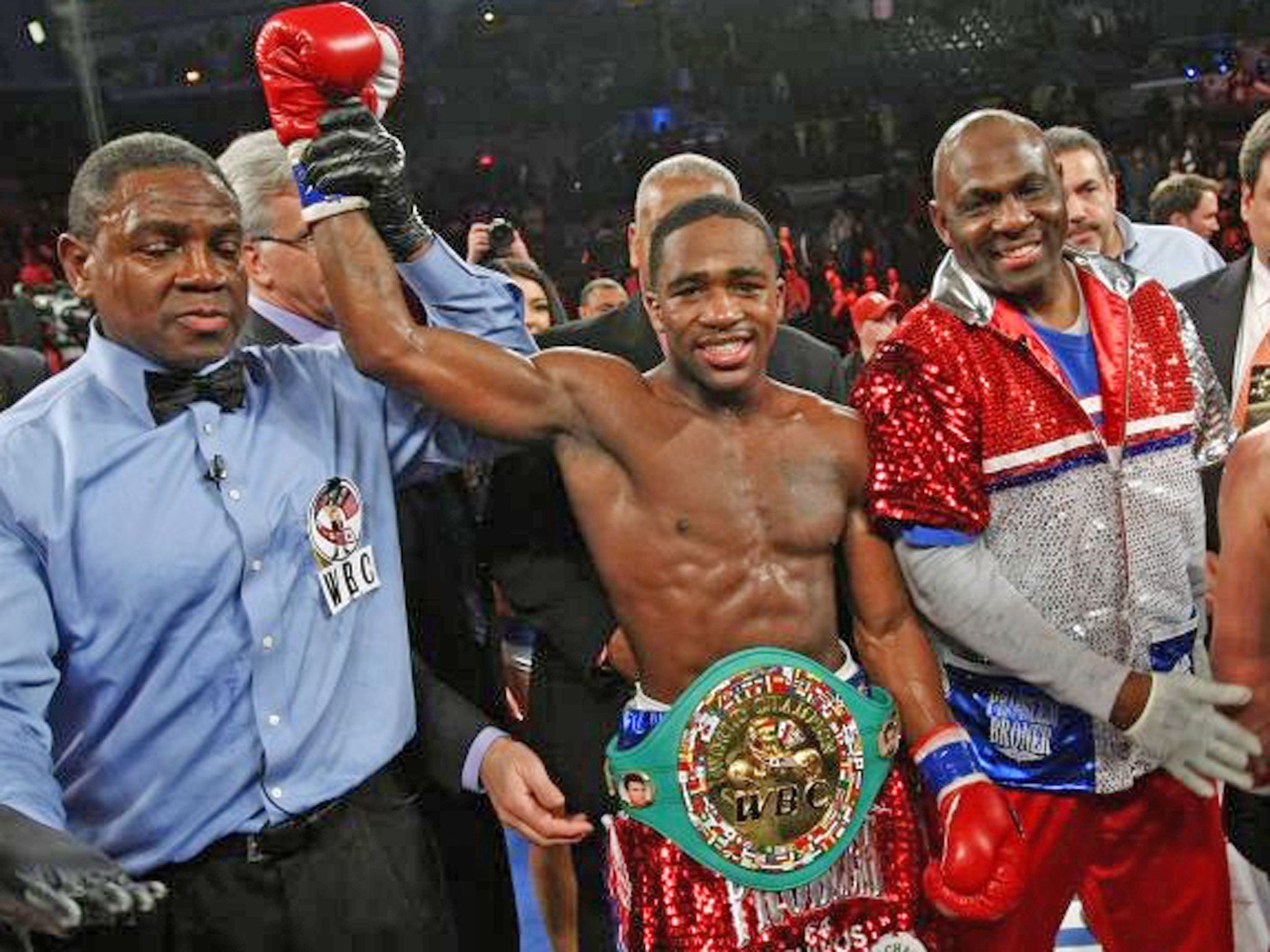Bunce on Boxing: Adrien Broner highlights long, hard fall of US heavyweights
The attention of fans in America has been on much smaller men

Your support helps us to tell the story
From reproductive rights to climate change to Big Tech, The Independent is on the ground when the story is developing. Whether it's investigating the financials of Elon Musk's pro-Trump PAC or producing our latest documentary, 'The A Word', which shines a light on the American women fighting for reproductive rights, we know how important it is to parse out the facts from the messaging.
At such a critical moment in US history, we need reporters on the ground. Your donation allows us to keep sending journalists to speak to both sides of the story.
The Independent is trusted by Americans across the entire political spectrum. And unlike many other quality news outlets, we choose not to lock Americans out of our reporting and analysis with paywalls. We believe quality journalism should be available to everyone, paid for by those who can afford it.
Your support makes all the difference.Last weekend in Atlantic City, which is a confusing beach and gambling outpost, a kid called Adrien Broner put the hurt on his nation's heavyweight aspirations.
Broner is just 23, he is the unbeaten WBC lightweight champion and HBO, who screened the annoyingly brilliant little fighter for the eighth time, have decided that he is their boxing future. It means that in Broner's glorious wake the search for America's next heavyweight, so long the sport's cash-cow division, has once again been delayed.
There has not been a regular mainstream heavyweight attraction in America since the relic of Mike Tyson limped in and out of shadow fights in the dark twilight of a great career. Tyson's last fight was in 2005 but his last meaningful fight was in 2002, when Lennox Lewis ruined him.
During Tyson's great years, which followed on from the Larry Holmes years, which in turn followed the champions from the Seventies, the American appetite for big men in big fights was also satisfied by Riddick Bowe and Evander Holyfield (right). The trio fought 57 main events, almost all were pay-per-view fights, between 1986 and the night Lewis beat Tyson. It is easy to forget what the trio achieved, with the help of Lewis, but it was in many ways a superb time for American heavyweights and their continued dominance.
Since the last heavyweight glory days the attention of boxing fans in America, which remains the obvious highest-paying destination, has been on much smaller men and even fighters from outside boxing's traditional borders. Manny Pacquiao, the Filipino congressman, has risen from less than 9st to an 11st cash machine in a decade of massive fights that regularly generate more money than any heavyweight bouts.
However, the true master of boxing's economic boom is Floyd Mayweather and his fights, the highest-grossing in the sport's history, have easily filled the void left by the exit of Tyson, Holyfield and Bowe. At the same time the failure of a new heavyweight to develop has, if the truth be told, not really been a factor; heavyweights in America win a few fights and are then sent to Germany for one of the Klitschko brothers to pulp – back home in America nobody really cares.
Broner's win over Gavin Rees on Saturday was swiftly followed by a love-in with his powerful broadcaster and then Broner outlined the agenda: "When Manny and Floyd leave, I will replace them." Broner will be joined on the new podium of millionaire scrappers by Andre Ward, Saul Alvarez, Nonito Donaire and Leo Santa Cruz. The heaviest is a super-middle, the lightest a bantamweight and they come from America, the Philippines and Mexico. Nobody is bothered about heavyweights when there are dozens of potential super-fights ready to be made at just about every single one of the lower weights.
The heavyweight shortage in its traditional home country is terrific news for British champion David Price and former champion Tyson Fury, both of whom are better prospects than anybody currently fighting at the weight in America. This Saturday, at the Echo Arena in Liverpool, Price fights Philadelphia's Tony Thompson, who has twice lost world title fights to Wladimir Klitschko and is arguably the best American heavyweight. Thompson is a good operator but he is not Broner and he is certainly not Tyson.
Join our commenting forum
Join thought-provoking conversations, follow other Independent readers and see their replies
Comments